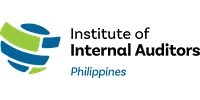Event Details
Objective (s):
The participants will be introduced and gain a better appreciation of the standards, frameworks, actual and "best practices", challenges, insights, references, various tips and techniques, and trends in managing the IT Audit Functions.
What You Will Learn:
I. Understanding the Mission, Requirements and Challenges of the IT Audit Functions
- General Standards
- Audit Committee and Audit Charter
- IT Steering Committee, CAE and Management Expectations
- Regulatory Requirements
- Traditional (or Cyclical) versus Continuous Auditing
II. Strategic IT Audit Planning
- Establishing the Audit Universe
i. IT Asset Inventory
ii. Application Controls (IT and EUC)
iii. General IT Controls
iv. Planned and Ongoing Projects (Pre-implementation Reviews)
- IT Strategy
i. Short Term Audit Schedule
ii. Long Term Audit Schedule
- Conducting Risk Assessment and Determining the Priorities
i. Risk Factors
ii. Rating Criteria
- IT Audit Engagements (types, challenges and implications)
III. Resource Management
- Matching IT Audit Plan versus Resources
- Attracting, Screening, Hiring and Retaining Talents
- Training of IT Auditors
- Equipping the IT Auditors
i. IT Tools (CAATs, VA, etc.)
ii. IT Audit Manual
iii. Library of References
i. ISACA's COBIT 2019
ii. ISACA's ITAF 4th Edition
iii. ISACA's Code of Ethics, Control Journals, free online courses, Whitepapers and Audit Programs
iv. NIST Guidelines
v. PMI's Foundational Standards (including PMBook 6th Edition, Risk Management, Business Analysis, etc.),
Practice Standards, and Practice Guides
vi. IIA's IPPF, ISPPIA, and GTAG
vii. (ISC2)'s Continuing Education Programs
- Outsourcing or Co-sourcing Considerations
IV. Engagement Management
- Performance Standards
- Initial Planning and Risk Assessment
i. Review of Previous Audit Working Papers
ii. Survey - Gather Additional Information from Auditees
iii. Develop or Revise Audit Programs
i. Objectives
ii. Risks and Controls Matrix
iii. Scope / Coverage
iv. Detailed Procedures
- Fieldwork
i. Kick-off Meeting
ii. Staff Assignment and Supervision
iii. Walkthrough Activities
iv. Risk and Control Assessments
v. Follow-up of Previous Audit Issues and Recommendations
vi. Determining the Initiatives and Improvements made by the Auditee
vii. Using the Work of Other Experts
viii. Irregularities and Illegal Acts
- Reporting
i. Standards and Guidelines
ii. Exit Conference
iii. Overall Audit Rating Criteria
iv. Initial Conclusion (Tentative) and Final Rating
V. Follow-up Activities
- Open Issues Monitoring (Aging)
- Validation of Resolutions
- Frequency of Reporting
VI. Consulting and Other IT Audit Services
VII. Emerging Trends, Agile Auditing and Audit Management Automation
VII. Question and Answer Session
Number of CPE Units : 7
Cancellation & Substitution Policy
- Cancellations received less than 24 hours prior to the event or after receiving the final confirmation email and zoom link will be charged a cancellation fee, which is 50% of the registration fee.
- Substitutions are allowed within the same event without incurring a cancellation fee. (Rate should be the same, if not, difference should be paid)
- No show registrants will be charged 50% of the registration fee.




